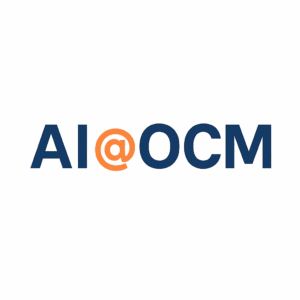In today’s rapidly evolving business landscape, disruption is an ever-present force that organizations must embrace and harness to thrive. The 2024 Futures Report by KPMG LLP highlights the critical need for companies to proactively manage disruption and seize the opportunities it presents. However, the report also reveals a concerning gap: only 60% of executives feel their companies are fully prepared to navigate disruption effectively.
This readiness gap poses a significant challenge, as organizations that fail to anticipate and adapt to disruption risk missing out on massive opportunities to unlock new business value. The report identifies several frontiers of opportunity, including Industry 4.0, Artificial Intelligence (AI), quantum computing, and the commercial space sector, all of which have the potential to disrupt industries and reshape the future of business.
Closing the Readiness Gap: The Pivotal Role of Organizational Change Management
To bridge this readiness gap and capitalize on the transformative potential of these disruptive forces, organizations must adopt a strategic and holistic approach to change management. Organizational Change Management (OCM) plays a pivotal role in ensuring that companies not only embrace technological advancements but also cultivate a culture that fosters innovation, agility, and resilience.
1. Aligning People, Processes, and Technology
One of the primary challenges organizations face when confronting disruption is the misalignment between people, processes, and technology. While companies may invest heavily in cutting-edge technologies, they often overlook the human aspect of change, leading to resistance, inefficiencies, and suboptimal adoption rates.
OCM addresses this challenge by focusing on the people side of change. It involves engaging employees at all levels, communicating the vision and rationale for change, addressing concerns and resistance, and providing the necessary training and support to ensure a smooth transition. By aligning people, processes, and technology, OCM enables organizations to maximize the value derived from their technological investments and foster a culture of continuous learning and adaptation.
2. Fostering a Culture of Innovation and Agility
In the face of rapid disruption, organizations must cultivate a culture that embraces innovation and agility. This requires a mindset shift away from traditional hierarchical structures and siloed operations towards a more collaborative, cross-functional, and agile approach.
OCM plays a crucial role in driving this cultural transformation by facilitating open communication, breaking down silos, and encouraging cross-functional collaboration. It involves implementing change management strategies that empower employees to think creatively, take calculated risks, and embrace a growth mindset. By fostering a culture of innovation and agility, OCM equips organizations with the resilience and adaptability needed to navigate disruption and seize emerging opportunities.
3. Building Organizational Resilience
Disruption often brings about uncertainty and volatility, which can strain an organization’s resources and capabilities. To thrive in this environment, companies must build organizational resilience – the ability to withstand shocks, adapt to changing circumstances, and bounce back from setbacks.
OCM contributes to organizational resilience by developing robust change management frameworks and processes that enable organizations to anticipate, prepare for, and respond effectively to disruptions. This includes conducting risk assessments, developing contingency plans, and fostering a culture of continuous improvement and learning. By building organizational resilience, OCM helps companies weather the storms of disruption and emerge stronger and more agile.
4. Enabling Data-Driven Decision-Making
In the era of disruption, data-driven decision-making is paramount. Organizations must leverage advanced technologies, such as AI and data analytics, to gain insights, identify trends, and make informed decisions that drive business value.
OCM plays a critical role in enabling data-driven decision-making by ensuring that employees at all levels understand the importance of data and are equipped with the necessary skills and tools to effectively collect, analyze, and interpret data. This includes providing training on data literacy, implementing data governance frameworks, and fostering a culture of data-driven decision-making. By enabling data-driven decision-making, OCM empowers organizations to make informed choices and capitalize on the opportunities presented by disruptive technologies.
Embracing Disruption, Unlocking Business Value
As the 2024 Futures Report highlights, disruption is an inescapable force that organizations must embrace and harness to unlock new business value. However, navigating disruption requires more than just technological investments; it demands a holistic approach that aligns people, processes, and technology, fosters a culture of innovation and agility, builds organizational resilience, and enables data-driven decision-making.
Organizational Change Management (OCM) plays a pivotal role in addressing these challenges and closing the readiness gap identified in the report. By implementing effective OCM strategies, organizations can cultivate a workforce that is equipped to embrace change, foster a culture of continuous learning and adaptation, and develop the resilience needed to thrive in an ever-evolving business landscape.
As the frontiers of opportunity continue to expand, organizations that prioritize OCM and proactively manage disruption will be well-positioned to capitalize on emerging trends, drive innovation, and unlock new sources of business value. Embracing disruption is no longer an option; it is a necessity for survival and growth in the rapidly changing business world.






